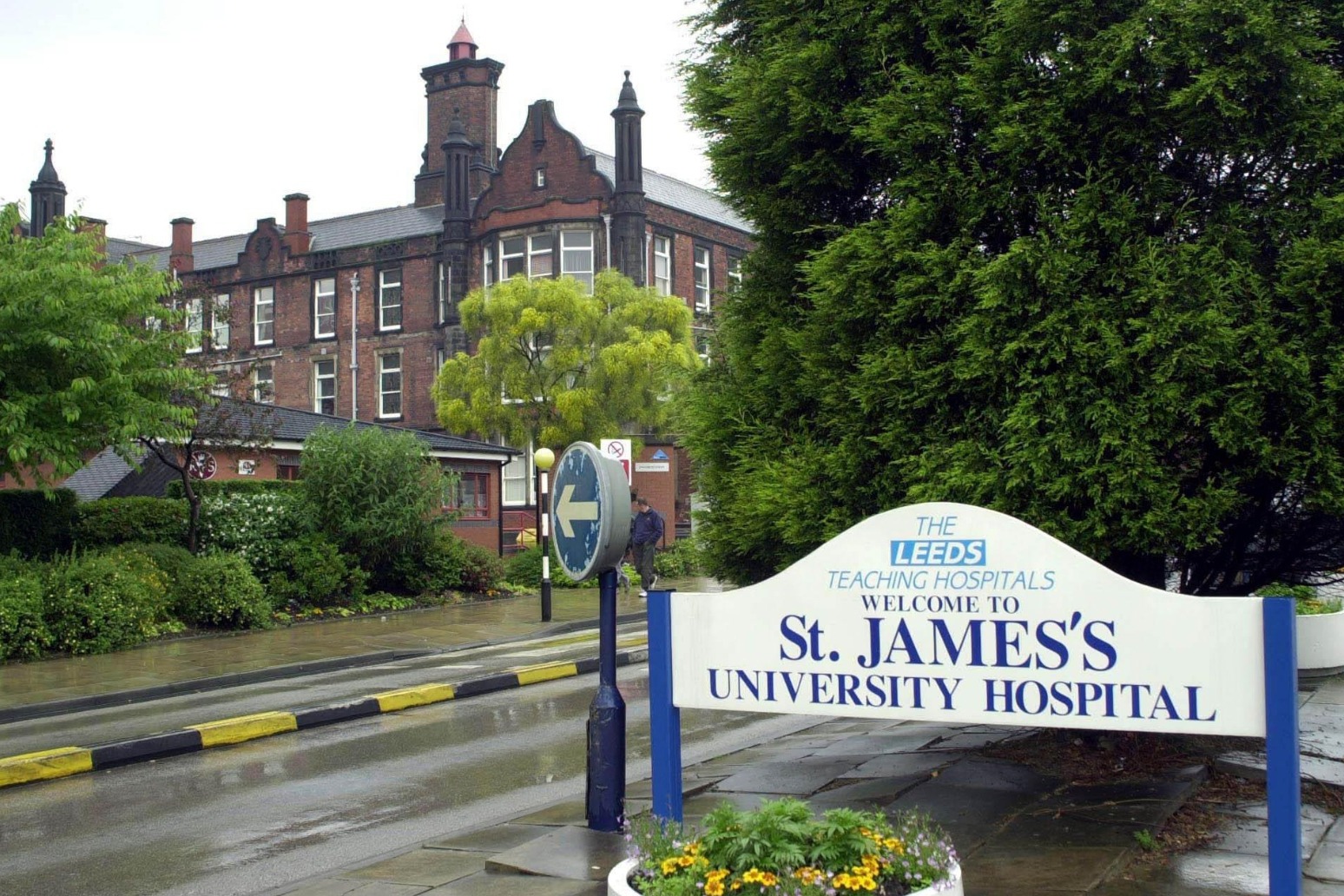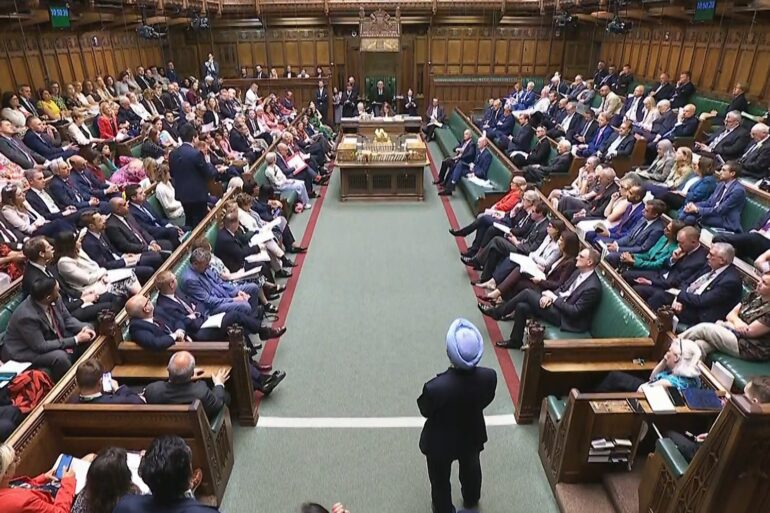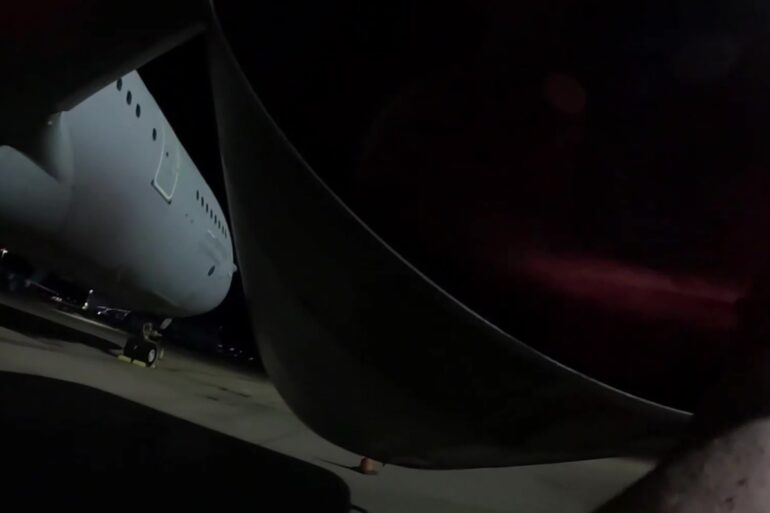-
 play_arrow
play_arrow
Chorley ONE Local Radio for Chorley
Maternity services in Leeds NHS hospitals downgraded by healthcare regulator


Two maternity services at NHS hospitals in Leeds have seen specific areas of care downgraded by the healthcare regulator for the first time since its founding.
Services at Leeds General Infirmary and St James’s University Hospital have dropped from an overall rating of good to inadequate after an investigation by the Care and Quality Commission (CQC) into reported issues with the quality of care.
Unannounced inspections of maternity and neonatal services at the two hospitals, which come under Leeds Teaching Hospitals NHS Trust, were made in December and January after whistleblowers, service users and their families raised concerns.
It is the first time the CQC has given specific ratings for the sub-department categories of effective, caring and responsive for maternity care as a standalone service.
Specific categories for “safe and well-led” were downgraded to inadequate, while “effective and caring” was rated as requires improvement and “responsive” was rated as good.
The CQC also rated the two hospitals’ neonatal services as inadequate, as they were rated as standalone services for the first time.
The regulator found breaches in several areas across the hospitals and their departments.
Among the issues identified in maternity wards were dirty areas that put people at risk of infection, medicines being stored unsafely and issues around a “blame culture” that meant staff stayed quiet about concerns.
In neonatal services at both hospitals, leaders had not ensured adequate staff levels with the right qualifications and skills, while there was no designated private space for breastfeeding and equipment was not secured safely, the report said.
Ann Ford, CQC’s director of operations in the North, said: “Prior to our visit, we had received a number of concerns from staff, people using the services and their families about the quality of care being delivered, including staff shortages in maternity at both hospitals.
“During the inspection, the concerns were substantiated, and this posed a significant risk to the safety of women, people using these services, and their babies as the staff shortages impacted on the timeliness of the care and support they received.”
Ms Ford said staff in the hospitals were working hard to provide good care to patients but “leaders weren’t listening to them” when they identified areas of concern, while she said the fact investigations were not always carried out after incidents had taken place was “concerning”.
Babies were also being transferred between the two hospitals “when it wasn’t safe for them to do so”, she added.
The overall rating for Leeds General Infirmary declined from good to requires improvement and St James’s University Hospital remains rated as requires improvement. The overall rating for the trust remains rated as good.
The CQC has told Leeds Teaching Hospitals NHS Trust to submit a plan showing what action it is taking in response to these concerns.
Katie Warner, an expert medical negligence lawyer at Irwin Mitchell’s Leeds office, said the findings would “understandably cause significant anxiety for families”.
“Our clients have long-held concerns that previous CQC inspection ratings didn’t accurately reflect the care on the ground families received, and things were worse than thought,” she said.
“Now that both services have been downgraded overall, our clients are now starting to feel listened to. However, the new ratings also raise serious questions about the standard of care being provided to families.”
Professor Phil Wood, chief executive of the trust, said: “These reports have highlighted significant areas where we need to improve our maternity and neonatal services, and my priority is to make sure we urgently take action to deliver these improvements.
“I want to reassure every family due to have their baby with us in Leeds and any new parents that we are absolutely committed to providing safe, compassionate care.
“We deliver more than 8,500 babies each year and the vast majority of those are safe and positive experiences for our families. But we recognise that’s not the experience of all families.
“The loss of any baby is a tragedy, and I am extremely sorry to the families who have lost their babies when receiving care in our hospitals.”
Professor Wood said the trust had “fantastic teams of dedicated, compassionate staff in our maternity and neonatal services”, and thanked those who had spoken “openly and honestly” with the CQC during their inspections.
He added: “I recognise we need to be better at listening to our staff and acting on their concerns and I’m sorry we have fallen short on this.
“I want to reassure staff that they can speak up and will be heard in a supportive way.”
The trust has already started making improvements to its services by recruiting 55 midwives since last autumn, while a further 35 newly qualified midwives are due to start later this year and more midwifery leadership roles have been appointed to support our clinical teams, the professor said.
Published: by Radio NewsHubClick here to read this story in full at Radio News Hub
Written by: admin
Similar posts
Latest News
- Historic vote brings assisted dying closer to becoming law in England and Wales
- Pro Palestinian activists break into RAF base and vandalise planes
- Chris Brown pleads not guilty to bottle attack charge
- Consumer confidence up in June amid dark shadow of inflation and war
- Met Police introduces patrols to protect women and girls at concerts
Top popular

Prison governor jailed over relationship with Jesse Pinkman drug boss

Pope Leo XIV gives first major address at inauguration attended by thousands

Trade Secretary to push for timeline on US tariff exemption

Royal Navy warship seizes 30m of drugs in Middle East

Warning over environmental vapocalypse despite ban on disposable versions
Copyright THe Mediasite - 2024








